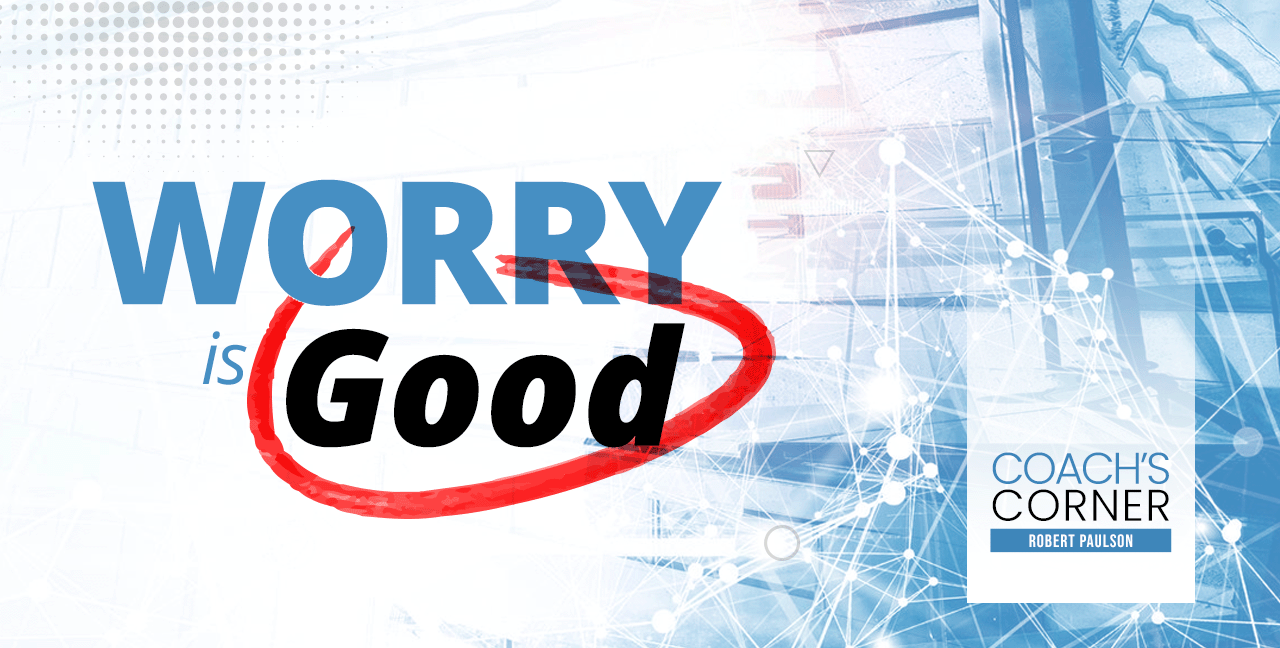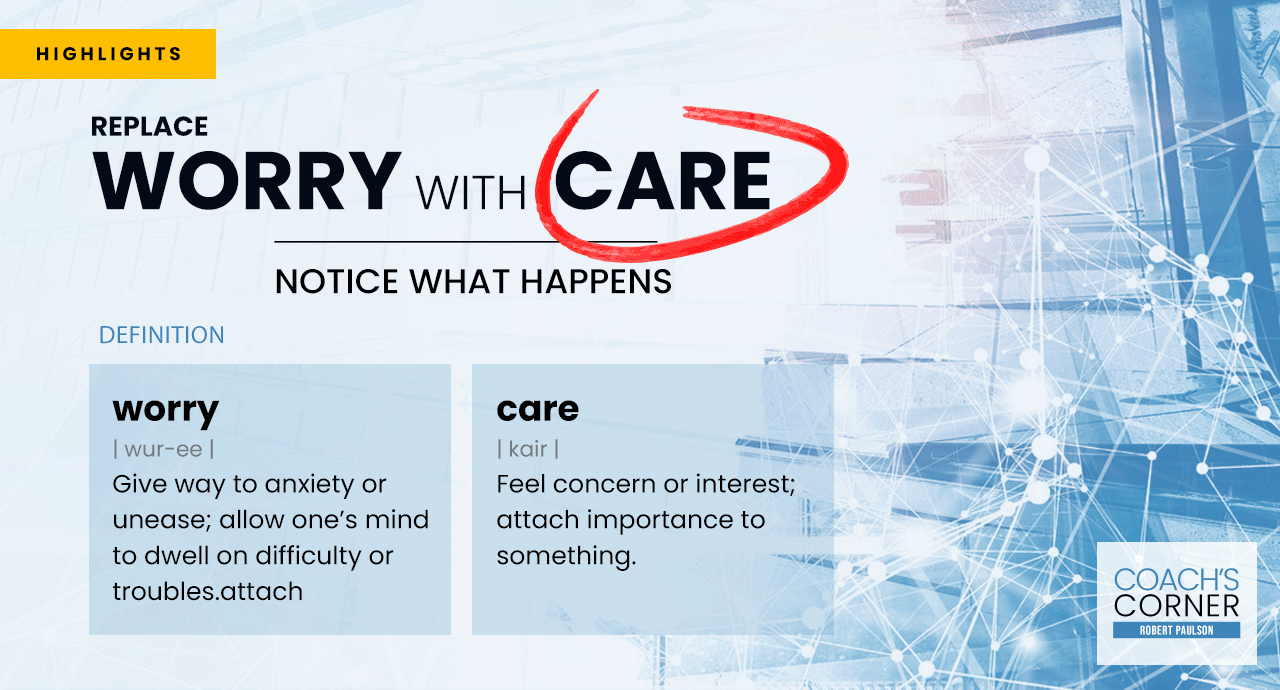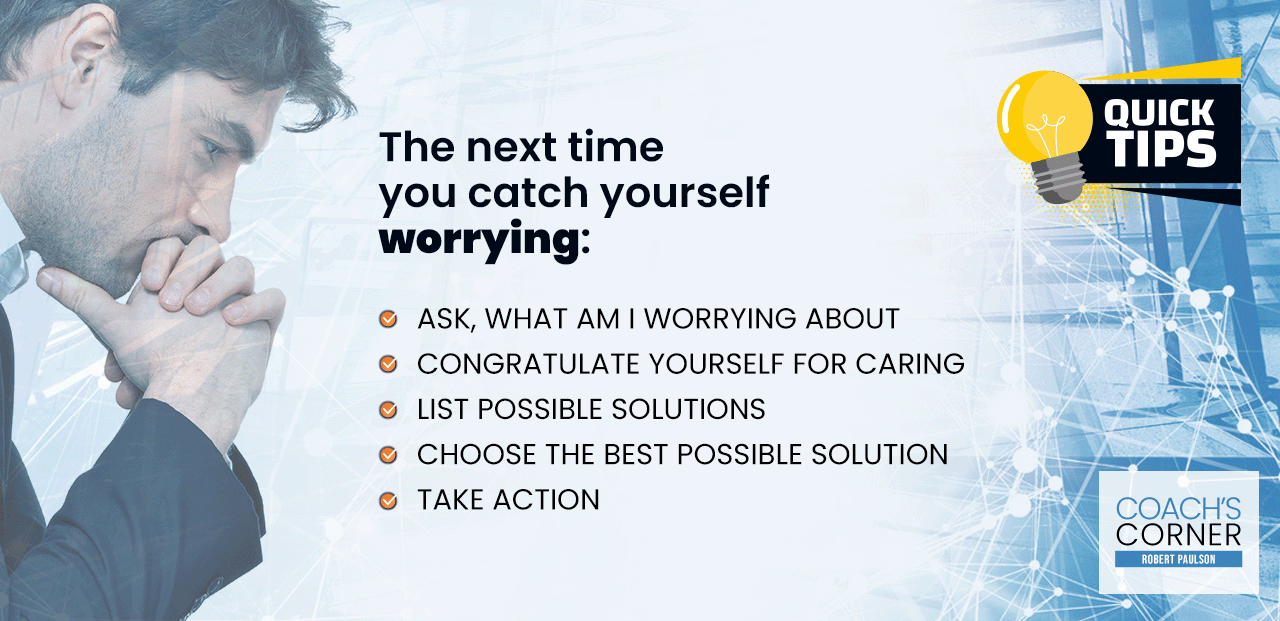
Worry pretends to be necessary but serves no useful purpose -Eckhart Tolle
You are awake in bed late at night, staring at the ceiling. Quarterly reports are due. The proposal for a new client pitch is on your laptop smoldering. Your Apple Watch is prompting you to stand up. You are in full throttle worry mode. Here's how to change that worry into something more effective.
When I am working with a client and they are worrying, the first thing I do is congratulate them. That's right. I congratulate them because worrying means they care. I remember talking with a client who was worried about giving a presentation the following morning. They understood and connected with the topic, did the research, prepared talking points, practiced and were as ready as they could be, yet they were convinced failure was inevitable. I remember the look they gave me after I congratulated them, like I was crazy or from another planet. I then asked if worrying was helping and they said no, it wasn’t. I asked, then why worry?

If worrying doesn’t help, why do it? We might have to do in-depth research to better understand “why” humans worry and what we do know is worrying is a choice, just like choosing to follow the recipe to bake a cake. Very simply the act of worrying is a process. First, think about something that you care about. Second, create a worst-case scenario. Third, combine them into a movie, adding color, sound, action, and visuals. Fourth, believe the movie is true, having no proof or evidence. Fifth and most disturbing, press repeat and watch it over and over again, acting as if you have no control over something you personally created. The structure of worry stays the same. The content changes. This is how we become a victim. It’s like stepping into quicksand and screaming for help, while holding a rope, able to pull yourself out.
In the movie Bridge of Spies, Tom Hanks portrays James B. Donovan an attorney defending a Russian spy who is about to be sentenced to the electric chair. Hanks leans over and says to him, “Do you never worry?” The spy answers, “Would it help?”
According to a Huffington Post article 85% of the things that we worry about never actually happen. Worry only creates stress hormones that erode our health, scatter our minds. We cannot function as clearly under this kind of attack on our system.
Now that we have replaced “worry” with “care,” we can focus our attention not on the quicksand but on the rope we are holding in our hand, a solution, something rewarding. The more aware we are of our thoughts, the more in control and effective we become.
A simple formula I learned along the way: Worry ÷ Care + Solutions = Good things
We all worry and when we pay attention, we are able to convert worry into caring. Then, we can begin working on finding a solution that will help us turn something negative into something good.

Here is something a friend shared with me, and I would like to share it with you. Turn up the volume and enjoy:
If you have any questions, post something here or email me at Info@RobertPaulson.coach and I will address them.
Enjoy!
Robert Paulson
